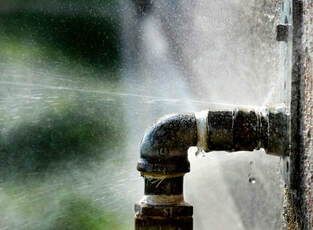Overview To Water Leak Detection At Home
Overview To Water Leak Detection At Home
Blog Article
This article down below relating to Detecting hidden plumbing leaks is exceedingly fascinating. Don't skip it.

Early detection of leaking water lines can mitigate a prospective calamity. Some small water leakages may not be noticeable.
1. Analyze the Water Meter
Every home has a water meter. Examining it is a proven way that helps you uncover leaks. For beginners, switch off all the water resources. Ensure no one will certainly flush, use the tap, shower, run the cleaning machine or dishwasher. From there, most likely to the meter as well as watch if it will transform. Considering that no one is utilizing it, there need to be no movements. If it moves, that shows a fast-moving leakage. If you identify no modifications, wait an hour or 2 as well as check back once again. This implies you may have a slow leak that might also be below ground.
2. Inspect Water Consumption
Assess your water costs and also track your water consumption. As the one paying it, you need to see if there are any kind of disparities. If you detect sudden changes, despite your intake coinciding, it indicates that you have leaks in your plumbing system. Remember, your water costs need to drop under the same range each month. An unexpected spike in your bill shows a fast-moving leak.
A stable increase every month, also with the same routines, reveals you have a slow leak that's additionally slowly rising. Call a plumber to extensively inspect your building, specifically if you really feel a cozy location on your flooring with piping beneath.
3. Do a Food Coloring Test
30% comes from commodes when it comes to water usage. Examination to see if they are running appropriately. Drop specks of food shade in the tank and wait 10 minutes. If the color somehow infiltrates your bowl during that time without flushing, there's a leakage between the storage tank as well as bowl.
4. Asses Exterior Lines
Do not fail to remember to check your outside water lines as well. Needs to water permeate out of the connection, you have a loose rubber gasket. One little leak can squander heaps of water and increase your water expense.
5. Assess the scenario as well as check
Homeowners need to make it a habit to inspect under the sink counters as well as even inside cupboards for any type of bad odor or mold and mildew development. These 2 red flags indicate a leakage so prompt interest is required. Doing regular evaluations, even bi-annually, can conserve you from a significant issue.
More significantly, if you understand your house is already old, maintain a watchful eye on your heating systems, pipes, pipelines etc. Look for stainings and damaging as many devices and pipes have a life expectancy. They will likewise naturally deteriorate due to tear and also use. Don't wait for it to escalate if you presume dripping water lines in your plumbing system. Call an expert plumber immediately so you don't end up with a dreadful mess in your home.
Early discovery of leaking water lines can alleviate a potential calamity. Some small water leakages may not be visible. Checking it is a surefire method that aids you uncover leaks. One small leakage can throw away lots of water and increase your water expense.
If you think leaking water lines in your plumbing system, don't wait for it to escalate.
WARNING SIGNS OF WATER LEAKAGE BEHIND THE WALL
PERSISTENT MUSTY ODORS
As water slowly drips from a leaky pipe inside the wall, flooring and sheetrock stay damp and develop an odor similar to wet cardboard. It generates a musty smell that can help you find hidden leaks.
MOLD IN UNUSUAL AREAS
Mold usually grows in wet areas like kitchens, baths and laundry rooms. If you spot the stuff on walls or baseboards in other rooms of the house, it’s a good indicator of undetected water leaks.
STAINS THAT GROW
When mold thrives around a leaky pipe, it sometimes takes hold on the inside surface of the affected wall. A growing stain on otherwise clean sheetrock is often your sign of a hidden plumbing problem.
PEELING OR BUBBLING WALLPAPER / PAINT
This clue is easy to miss in rooms that don’t get much use. When you see wallpaper separating along seams or paint bubbling or flaking off the wall, blame sheetrock that stays wet because of an undetected leak.
BUCKLED CEILINGS AND STAINED FLOORS
If ceilings or floors in bathrooms, kitchens or laundry areas develop structural problems, don’t rule out constant damp inside the walls. Wet sheetrock can affect adjacent framing, flooring and ceilings.
https://www.servicemasterbyzaba.com/blog/how-to-detect-water-leakage-in-walls/

We hope you enjoyed reading our post about Leaking water lines. Thank you so much for spending some time to read through our short article. Do you know someone else who is interested by Detecting hidden plumbing leaks? Do not hesitate to share it. I cherish reading our article about Locating water leaks.
Report this page